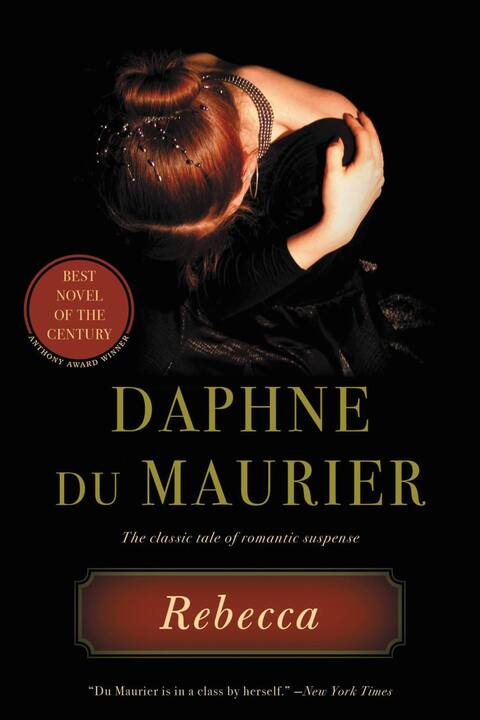Rebecca
“Last night, I dreamt I went to Manderley again.”
This is the timeless opening line of one of my favorite fall reads: “Rebecca” by Daphne du Maurier. Published in 1938, this English novel sold nearly 2.8 million copies between the years 1938 and 1965, according to Suntup Editions. Since then, it has not once been out of print.
This novel is one I go back to time and time again. It is a book I can never put down and a recommendation I always make to new and experienced readers. It is also a story that begins in the city of Monte Carlo.
While on holiday, a young woman catches the eyes of the wealthy and single Maxim de Winter. Not only a powerful and wealthy man, Winter is also the owner of Manderley, a lavish estate on the Cornish coast.
Swept up in an abrupt romance, the unnamed narrator is whisked away to the dark, coastal estate. However, what she finds there is far from what she was promised on the coast of Monte Carlo. She is now tasked with taking care of the house and working with the insufferable head housekeeper Mrs. Danvers. However, her ornery maid is not her only concern.
She is haunted, not only by the long, lonely halls of her new home and her husband’s emerging past, but by the memory of a mysterious woman known only as Rebecca.
I was first introduced to this novel by a friend in high school who very much reminded me of a Jane Austen novel. She lived in a cottage that featured old oil paintings of proper women on dark green walls, and she spent most of her extra time playing the violin or working at the local library.
When I told her “The Great Gatsby” was my favorite novel, she suggested I pick up du Maurier’s “Rebecca.” Doing so was a decision I have not regretted.
Once I quickly finished the novel and gave her back the copy she let me borrow, we both had the same reaction, which was something along the lines of, “I know, right?” Since then, I have continuously recommended this novel with great enthusiasm and my Jane Austen friend in mind.
What stands out to me about “Rebecca” is its lure of the unknown. Most suspense books keep you on the edge of your seat only momentarily or leave you questioning the artistic choices of the author, but “Rebecca” did not disappoint. This nail-biting novel has the shock factor and contains even greater depth within its dark twists.
The narrative is chilling, and the main character doesn’t lack her own mystery. As she is haunted in her new life, the reader questions the validity of her storytelling abilities. Throughout the novel, I didn’t know who to believe or who to trust, which placed me in line with the main character’s experience. I was consumed by my need for answers, which left me in a mad haste to get to the next chapter.
However, it’s not just the unknown female lead who leaves the audience guessing. All of du Maurier’s characters have profound personalities and presence within this novel, and they work together to drain the reader of their sanity. The experience results in a book of slow burn at a fast pace, horror without the gore and tragedy with a satisfying ending.
“Rebecca” encapsulates the yearning of “Pride and Prejudice,” the thrill of “The Haunting of Hill House” and the glamor of “The Great Gatsby.” It is a novel of suspense, romance and discovery, and it has the power to transport its reader to the dark seaside of the English coast and keep them there, turning page after page.
Du Maurier’s female lead describes the feeling quite fantastically, saying, “If only there could be an invention that bottled up a memory, like scent. And it never faded, and it never got stale. And then, when one wanted it, the bottle could be uncorked, and it would be like living the moment all over again.”
To me, “Rebecca” is that invention. Every time I read du Maurier’s tale, I am taken away to a time and a place I can only remember when I open up the pages of my annotated copy again and again. It is a novel of dark seasides and bottled memories and a story of love as it connects with mystery.
I invite you as a reader to decide if you want to remain on the surface of du Maurier’s world or dive into the depths of a story so mesmerizing, you won’t ever be able to put the cork back in the bottle.
“Rebecca” has also been adapted to film twice, once in 1939 with du Maurier as the lead and again in 2020 as a Netflix original starring Lily James.

